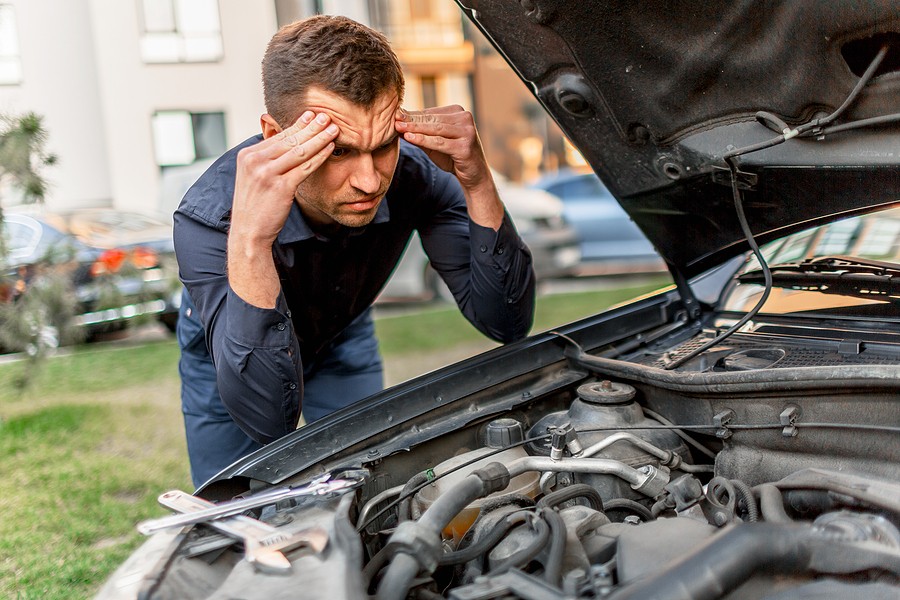Are you having trouble getting your car to start? Have you heard the dreaded “click-click” sound when trying to turn it on? Don’t worry, we’ve got you covered!
In this blog post, we will discuss some of the most common reasons why cars won’t start and how to troubleshoot them.
Dead Battery
A dead battery is one of the most common reasons why a car won’t start. If your car is turning over but not starting, it could be because the battery is weak or completely dead. You can test the battery with a voltmeter, and if it shows that it is low, you can charge it or replace it.
Make sure to double-check the battery connections and cable connectors as well to make sure they are making good contact.
Battery Corrosion
Due to the acid in the battery and the high voltage, the terminals of a car battery can rust over time. This can cause poor connection and resistance to starting and proper charging as the car is running.
Corrosion can get so bad that it makes it hard for the starter motor to work, which makes it hard to start the car. Luckily, the connection can be fixed by giving the battery a simple cleaning with a baking soda and water solution.
Noticing some white, powdery stuff around your car’s battery terminals? Learn why car batteries corrode and what to do about it.
Bad Battery Connection
When it comes to why a car might not be starting, one of the most common causes is a bad battery connection. Cars won’t start if the cable connections on their car batteries are ripped or loose.
You should make sure that all connections are tight and working properly. If not, this may also result in the AC not cooling.
Bad Alternator
A bad alternator is another common reason why your car won’t start. Alternators are responsible for supplying power to the battery, and if they’re not working correctly, it can lead to insufficient charge in the battery. This can lead to a car that won’t start, as the battery won’t have enough charge to get the engine running.
If your car starts but then dies shortly after, this could be a sign of an issue with the alternator.
It’s important to have your car inspected by a professional mechanic if you suspect that there’s an issue with the alternator.
Fuel Isn’t Getting to the Engine
Constant fuel pressure is necessary for the engine to run, and a routine maintenance item, the fuel filter, may collect debris that’s in the fuel tank and become clogged over time. Check your owner’s manual to find out how often, or how long ago your fuel filter should have been changed and if it needs to be replaced.
A clogged fuel filter will prevent the necessary fuel from getting to the engine, which can cause it not to start.
The filter is responsible for ensuring the engine receives the fuel it needs to run properly. A clogged fuel filter restricts the flow of fuel and can make it difficult for your car to start. If the fuel filter is not replaced, it can cause more fuel to enter the combustion chamber, resulting in poor engine performance and difficulty starting.
Issues with the Ignition System
The previous section discussed how a bad battery, corrosion, or a poor connection can stop your car from starting. Another issue that can cause your car to not start is an issue with the ignition system.
Issues with the ignition switch can cause there to be no power in the starter motor or ignition system, and your car won’t start.
To determine if there is a problem with the ignition switch, visually check the distributor cap (if your vehicle has one) and the spark plug wires, and ensure that they are firmly connected and in good condition.
If these components are good, then the problem may lie within the actual switch itself and it may need to be replaced.
Starter Motor Issues
If your vehicle still won’t start after checking the battery, alternator, and ignition system, then you may have a faulty starter motor.
The starter motor is an electrical device that is responsible for turning the engine over and providing the power necessary to get your car running. If the starter motor or the starter solenoid is broken, your car won’t start when you turn the ignition key.
The mechanic will be able to figure out what’s wrong and decide if the starter motor needs to be changed.

Why There is No Click When You Turn the Key?
When you turn the key in the ignition and nothing happens, it could be because of a bad ignition switch, a weak battery, or a clogged fuel filter. In this case, there won’t be any clicking sound from the starter motor.
You may also experience some electrical problems, such as flickering headlights or dashboard lights. Fortunately, this could be an easy fix—replacing the battery or cleaning corroded connections may do the trick.